Introduction
Gout, a painful form of arthritis, has long been associated with diet, particularly overindulgence in meat, seafood and alcohol. As a result, gout treatment used to include severe dietary restrictions, which made the gout diet hard to stick to. Fortunately, newer medications to treat gout have reduced the need for a strict gout diet.
Gout occurs when high levels of uric acid in your blood cause crystals to form and accumulate around a joint. Your body produces uric acid when it breaks down purines. Purines occur naturally in your body, but you also get them from eating certain foods, such as organ meats, anchovies, herring, asparagus and mushrooms.
Causes of Gout
The pain and swelling in gout is caused by the uric acid crystals that build up in the joints. Certain foods are high in purine. Uric acid is a waste product of purine metabolism. It is dissolved in the blood and excreted through the kidneys into the urine. In people with gout, the uric acid level increases beyond normal and uric acid crystals are deposited in joints and other tissues. These needle-shaped crystals trigger an immune response that produces intense local inflammation with severe pain, tenderness and swelling especially of the lower limbs, and commonly, the big toe.
Stones form when the uric acid concentration in the urine is too high - this is caused by low water intake, diuretics, and overly acidic urine. In 90% of cases a diet rich in purines and lifestyle may be the main culprit, while the remaining 10% are due to inherited conditions
Symptoms of Gout
After several years of increased serum uric acid, uric acid crystals can build up in the joint(s) and surrounding tissues. They form deposits that are sometimes apparent as firm lumps under the skin. These lumps often are found in or near severely affected joints, on or near the elbow, over the fingers and toes and in the outer edge of the ear. Uric acid crystals can also form stones in the kidneys, the ureters and the bladder. They can also increase blood pressure and put you at risk of having serious kidney ailments.
Prevention and treatment
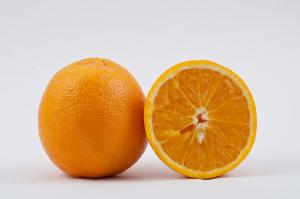 |
| Orange |
|
© Biovision
|
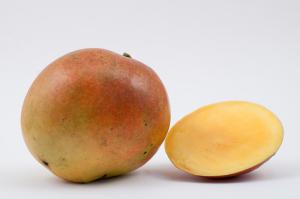 |
| Mango |
|
© Biovision
|
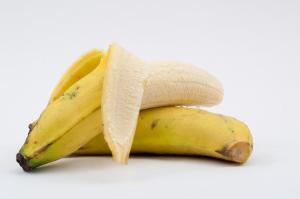 |
| Banana |
|
© Biovision
|
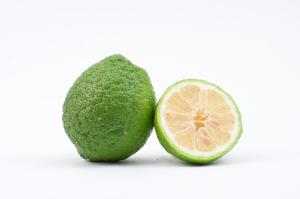 |
| Lime |
|
© Biovision
|
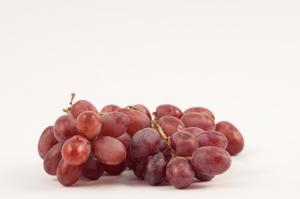 |
| Grapes |
|
© Biovision
|
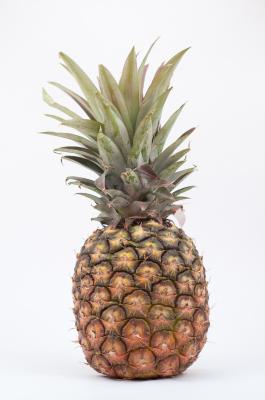 |
| Pineapple |
|
© Biovision
|
Dietary Management
- Reduce intake of proteins, especially red meat. You should eat the equivalent of a palm size not more than three times a week. If the levels of uric acid are very high, you may need to stop consuming red meat, while still controlling the amounts ingested from white meat. Many go on to eat white meat in excess which does not help the situation.
- Foods to avoid include meats and animal organs very high in Purines such as beef, mutton, veal, tripe (matumbo), kidney, liver, heart, processed pork products and yeast.
- Avoid drinking beer. Beer really makes the problem worse
- Include foods rich in Vitamin C. Vitamin C has been shown to increase urinary excretion of uric acid.
- This enhanced excretion of uric acid from the body is very beneficial and helps lower the levels of uric acid levels. Food rich in vitamin C include citrus fruits (lemons, lime, oranges, tangerines, mangoes, pineapples and lesser citrate fruits like grapes, grape fruits, apples,guavas and bananas)
- Vitamin B has been shown to increase enzyme production and helps break down the uric acid. Please consult your physician or dietician. Do not take over the counter supplements.
- Drink plenty of non-alcoholic fluids such as fruit juices, tea and water. Drink more than the recommended 8 glasses of water. This helps to dilute the urine and promote excretion of Uric acid through the continuous flushing of the kidneys.
- If you are hypertensive, high uric acid levels will get your pressure out of control. You have to be more serious about taking the medication prescribed by your physician and dietary advice.
- See your dietician/nutritionist for more information and a list of foods containing purines.
Diet recommendations
The following recommendations and more can be found on: www.goutfoodtoavoid.com
1. In case of attack use Apium graveolens extract equivalent of 3 grams ( 3000 mg) combined with celery seed oil of 2 mg, every day to help maintain this horrible arthritis.
2. Also beneficial to experiment with moderate amounts of Apple Cider Vinegar as this reduces the Ph level in blood, plus aids in arthritic pain management.
3. Baking Soda is another item to use when you have a severe attack coming on as this acts fast, but has its own potential problems if used regularly due to its salt content.
Healthy foods for Gout
So while changing your diet is not the only way to combat gout, although it is a good plan but there is more. There is good advice generally available that your healthcare professional will be happy to discuss with you. Also, you should learn what the high purine foods are so that you can make sure you avoid them.
- Introduce low-fat dairy products into your diet and avoid products such as butter and cream, look to drink soya milk as it is very low fat.
- Drink plenty of water and non alcoholic beverages; these help to flush uric acid out of your body.
- Avoid beef, pork and lamb as well as organ meat such as liver brains or kidneys, don't eat meat based gravies either.
- Keep alcohol consumption to a minimum, avoid beer and strong spirits. If possible, avoid alcohol totally.
- Seafood products are to be avoided, in particular herrings, anchovies and sardines as well as Roe fish eggs. Mussels, scallops and cod trout and haddock too should be avoided.
- Don't eat the following vegetables; spinach, cauliflower, mushrooms and asparagus.
- Also, oatmeal dried beans, lentils and peas will not help lower your uric acid reading.
The whole point is to lessen the amount of purines
Purines produce uric acid. Uric acid produces uric acid crystals. Uric acid crystals deposit themselves in your joints, causing gout. Cutting back on foods that contain purines or eliminating them altogether, is the only way to treat gout without medication. It is also highly effective. Gout foods to avoid, the really serious ones are; herring, sweet breads, hearts, sardines, mussels, smelt and yeast. These are the foods that should be avoided at all costs. They are the highest offenders when it comes to purines.
Everything in moderation
Other foods containing purines, but still safe to enjoy in moderation (and I do seriously mean moderation) are; veal, anchovies, mutton, grouse, trout, bacon, goose, liver, partridge, salmon, kidneys, turkey, scallops, pheasant and haddock. You can still enjoy these but take it easy. Good news for lovers of Friday Fish Fries; and try your haddock baked or boiled on occasion to get away from the grease.
Review Process
1. Draft by Alice Ndong March 2010
2. Update by Infonet Oct 2011
3. Review by Dr Alice Ojwang-Ndong January 2012
Information Source Links
- Phylis A. Balch, and James F Balch, Prescription fro Nutritional healing, 3rd Edition.
- www.mayoclinic.com
